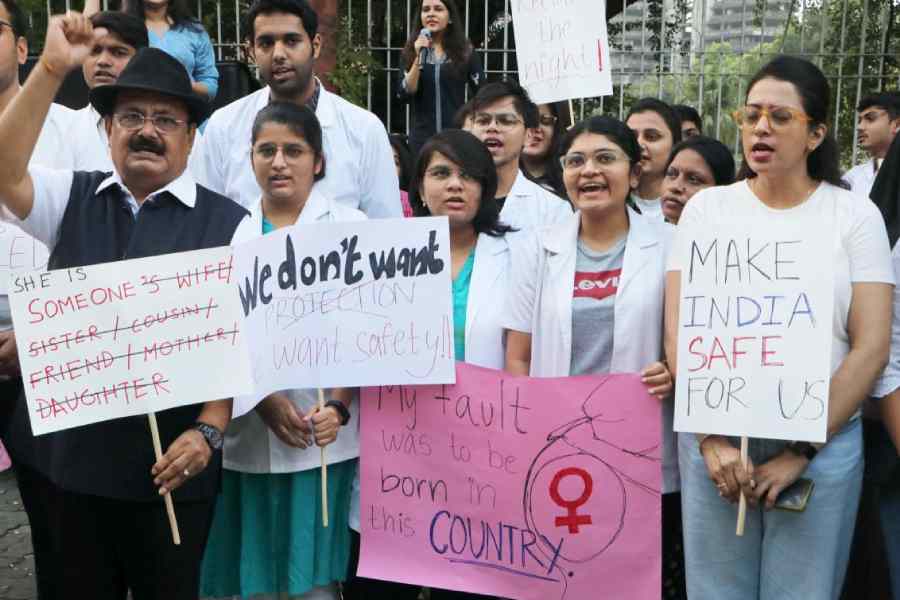The Supreme Court on Sunday took suo motu cognisance of the rape and murder of a young doctor at RG Kar Medical College and Hospital in Calcutta and decided to examine the issue.
A source close to the Chief Justice of India said this was perhaps the first time the top court had taken suo motu cognisance of a crime committed against an individual.
The Supreme Court had not done so even in connection with the 2012 Delhi gang rape and murder that shook the nation. The Nirbhaya case culminated in amendments to IPC Section 375, enhancing the punishment for such brutal crimes to death, life imprisonment or a jail term of at least 20 years. Earlier, the maximum punishment for rape was seven years’ imprisonment.
The bench of Chief Justice D.Y. Chandrachud, Justice J.B. Pardiwala and Justice Manoj Misra will take up the RG Kar atrocity as a special criminal writ petition at 10.30am on Tuesday since Monday is a public holiday on account of Raksha Bandhan.
The case has been titled “In Re:(regarding) Alleged rape and murder incident of a trainee doctor in RG Kar Medical College and Hospital, Kolkata, and related issues”.
It will be taken up "at the top of the board”, meaning the matter will be heard at 10.30am when the apex court assembles for the day.
Calcutta High Court had on August 13 ordered the CBI to take over the investigation.
The Supreme Court is expected to seek a detailed status report from the CBI when it assembles on Tuesday for the special hearing.
Conventionally, the Supreme Court does not interfere when a high court has taken cognisance of a matter.










